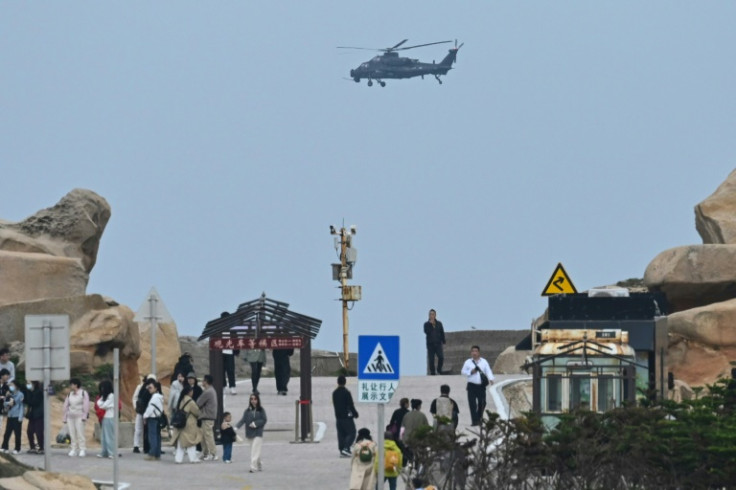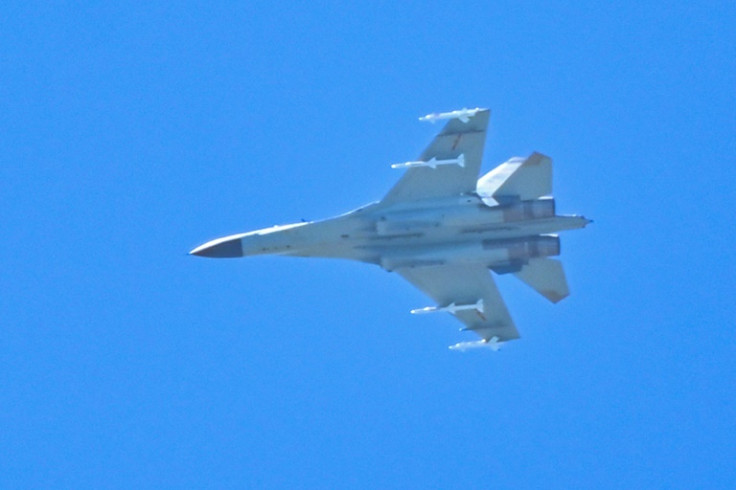China Has Better Chance Of Controlling Taiwan Air Than Russia In Ukraine: US Intel

KEY POINTS
- Leaked Pentagon documents suggested China would easily establish air superiority in any attack on Taiwan
- The Pentagon criticized Taiwan's highly scripted missile warning drills
- Only more than half of Taiwan's warplanes are capable of engaging with the enemy
Leaked Pentagon intelligence reports revealed grim assessments of Taiwan's defenses against China in a cross-strait conflict.
U.S. intelligence officials suggested that China would have a better shot at dominating Taiwan's airspace in a potential conflict than Russia did in Ukraine, The Washington Post reported, citing the leaked classified Pentagon documents.
Pentagon assessments showed that Taiwanese officials are not confident that the island's air defenses can "accurately detect missile launches," suggesting that China could easily establish air superiority in a potential attack.
According to the assessments prepared by the Pentagon's Joint Staff intelligence directorate, Taiwan's air defense forces lack a "common operating picture," or the ability to see where all units are at a given time.
U.S. defense officials also downplayed the decision-making ability of Taiwanese air defense commanders, saying that they "may hesitate to engage manned aircraft due to fear of escalation, even with first strike orders or imminent air threats.''
Another classified assessment noted that "high-volume PLA [People's Liberation Army] fires" from China's short-range ballistic system could easily strain Taiwan's current doctrine of firing two air defense missiles per target.
Pentagon analysts also slammed the self-ruled island's missile warning drills as highly scripted and believed they didn't do enough to prepare Taiwanese civil authorities and the public for "a real-world event."
Other scathing U.S. assessments of Taiwan's air defense capabilities highlighted the island's lack of compatible secure radios. They also claimed that only more than half of Taiwanese warplanes are capable of engaging with the enemy and that moving combat aircraft to shelters would take at least a week, opening a window for possible Chinese missile strikes.
However, a former White House official during the Trump administration believes air superiority alone will not win a war.
Former deputy national security adviser Matt Pottinger argued that the U.S. and Japan could fill the gaps in Taiwan's air defenses. Pottinger also stressed that Taiwanese leaders should urgently ramp up the island's capabilities to defend itself against China.
In a statement, the Taiwanese Defense Ministry told the Washington Post that it "respects outside opinions about its military preparedness." The defense ministry added that the Taiwanese military is "absolutely capable, determined and confident" of defending the island, citing their response to recent Chinese military exercises.
Meanwhile, an unnamed Chinese official familiar with the People's Liberation Army's Eastern Theater insisted to The Post that China "has the ability to swiftly defeat Taiwan in the air and sea." But the official expressed concern about possible U.S. intervention to defend Taiwan.
The intelligence reports are part of the dozens of highly-classified documents that were leaked online and first appeared on the Discord messaging platform.
The Federal Bureau of Investigation arrested Jack Teixeira, a 21-year-old Massachusetts Air National Guard member, for his primary role in leaking some of the U.S.' classified information.
The leaked documents came as cross-strait tensions between China and Taiwan continue to flare up.
China recently held its three-day large-scale military exercises in protest of Taiwanese President Tsai Ing-wen's meeting with House Speaker Kevin McCarthy.
The Chinese military simulated encircling the island and attacking key Taiwanese targets, demonstrating China's preparations for a possible full-scale war against Taiwan.
Taiwan also staged large-scale emergency response drills, simulating Chinese missile and chemical weapons attacks.
China-Taiwan tensions date back to 1949 when the island split off from mainland China after a bloody civil war. Since then, Beijing has not recognized Taiwan's independence.

© Copyright IBTimes 2024. All rights reserved.






















